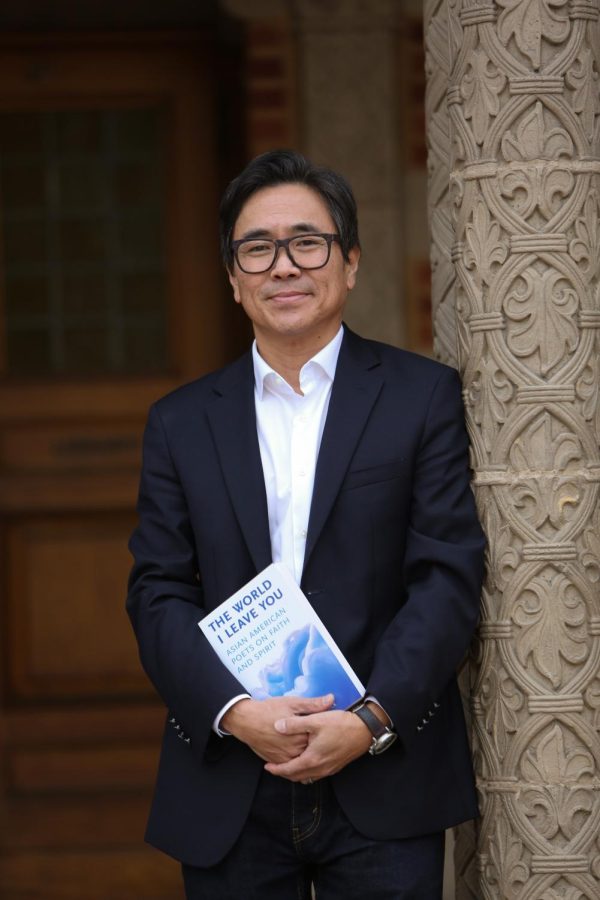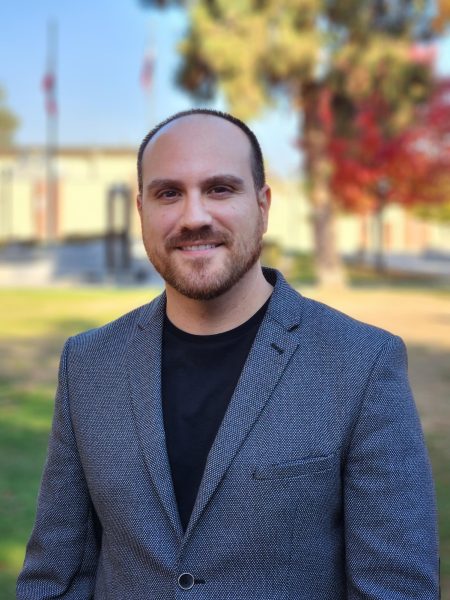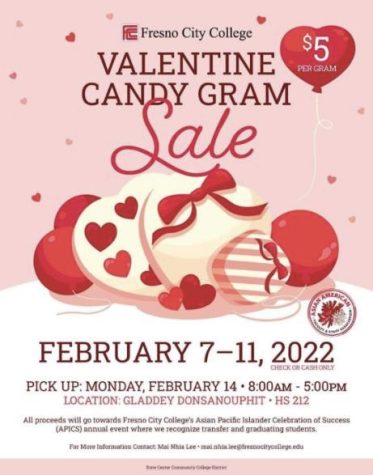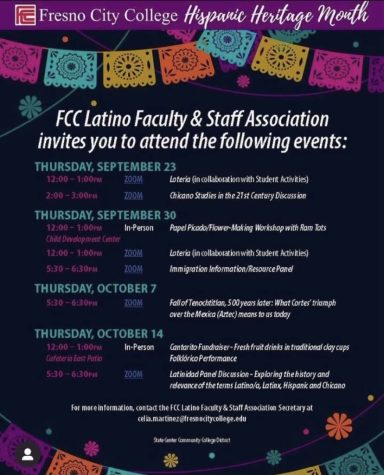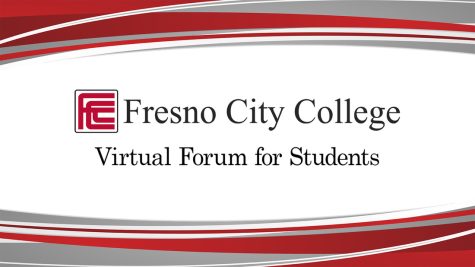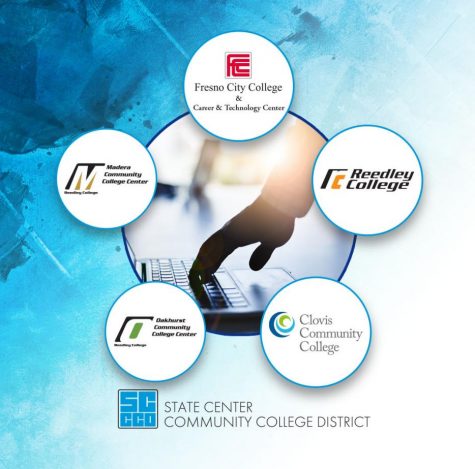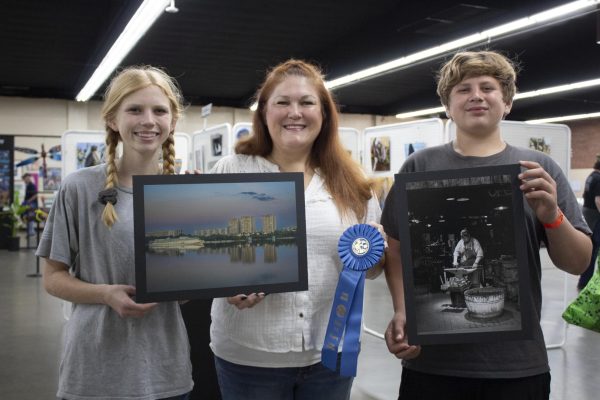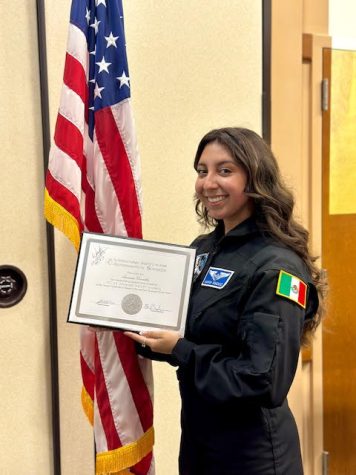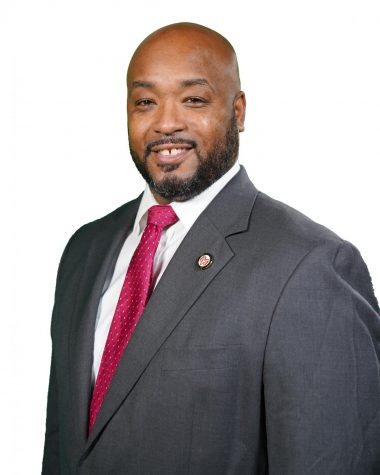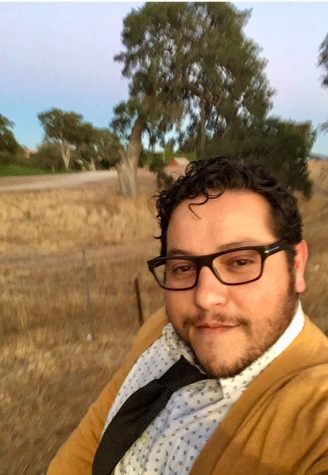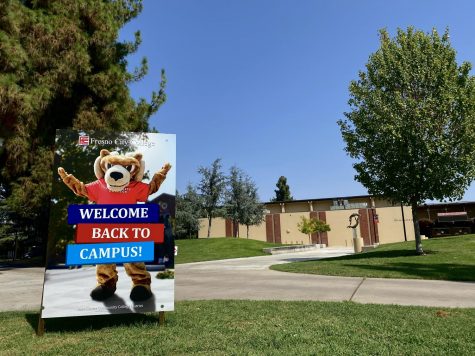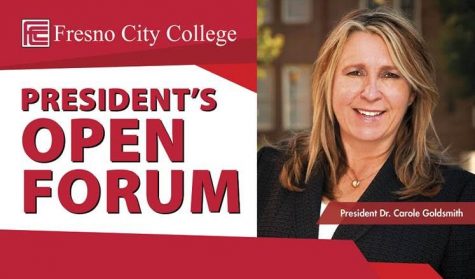Life of Lee Herrick: California’s Poet Laureate
Photo by: Photo provided by FCC PIO Kathy Bonilla
Lee Herrick, FCC English professor
Childhood, a shared experience that shapes us into who we become, usually accompanied by trauma.
Angst, anxiety, depression, fueling the feeling of needing to escape. Trying to find who you are as a teenager looks different for everybody, and for Lee Herrick, music was the answer.
“I was deeply inspired by rap and punk music when I was younger,” Herrick said. Public Enemy, Beastie Boys, Fugazi and A Tribe Called Quest are only a few of his favorites. Leaning forward with excitement in his eyes, he explains, “I liked that velocity, the energy, the emotion, the sort of visceral power that accompanied the music.”
In middle school, Herrick remembers writing song lyrics in his three-ring binder. “I wrote a lot of really bad rap songs, but I loved writing rap songs,” Herrick said. He pauses and laughs quietly as he reminisces about his youth, “I hesitate to call it a band, but some of my friends in high school would play in a friends garage in a band and I wrote some song lyrics for that. Those were some of my earliest memories of writing.”
Herrick’s office looks like a writer’s office should. Wall to wall with books, a desk with pieces of paper and Post-it notes that have scribbles of words, a visual representation of the excitement when the writer’s block breaks.
Herrick was 10 months old when he was adopted from Daejeon, Korea by American parents. He grew up in a small, quiet east bay town called Danville until the age of eight when they moved to Modesto, CA where he graduated high school and went on to Modesto junior college.
“Adoption is seen through Hollywood’s lens as purely and essentially as a blessing and a gift. Which in some way may be true, however adoption is also wrapped in trauma,” Herrick said.
Growing up in an American family in the 80s, Herrick had to discover most of his Korean culture on his own while seeing a heavy lack of representation of his culture.
“It wasn’t common in the media. There were no Korean actors on mainstream television. Hardly any Korean films or Asian-American films like there are now,” Herrick said. “It was a little bit more isolating.”
The anxiety came swinging in 1989, during his senior year of high school and followed him through most of college. During that time there weren’t many options when it came to mental health, so he turned to music to help quiet his brain through sleepless nights. “You kind of just had to make do or things weren’t very helpful,” Herrick said. “‘Handle your business or be a man,’ so the arts and music was a great outlet for me.”
But Herrick said he was blessed with a home warm, filled with love and surrounded by creativity. “I was inspired early on by family members who were artists and creative people in different fields. My mom is a visual artist,” Herrick said.
Herrick’s love for music, alongside the struggle of being a teenager, brought him into the world of poetry. Luckily for Herrick, he would go on to have teachers who supported him in his artistic endeavor.
“I had some very influential teachers who showed me what literature and poetry can do for a person, for a community, for a culture, even for an idea,” Herrick said.
Herrick’s senior year high school teacher, Nancy Barr, was one of them. “She was deeply passionate about poetry and language and wanted her students to know what language is capable of,” Herrick said.
While attending Modesto’s junior college, Herrick would go on to have influential professors, such as Paul Neumann, to help broaden his view of the arts.
“He exposed us to a lot of mid 20th century American poets, poets who were writing about social resistance and social change around the time of the Vietnam war,” Herrick said. “He was very inspirational.”
Herrick’s passion for music and poetry, alongside the supportive family, friends and teachers around him, would eventually lead him to pursue poetry as a career. He’s gone on to author three books of poetry, be named poet laureate for Fresno and then the entire state. He has been teaching English at Fresno City College since 1997 where he is beloved by his students and peers.
When applying for teaching positions, he was presented with a few options, but ultimately decided that FCC was the place for him. “Fresno City College, I fell in love with. I love the buildings and the trees and the students and the faculty that I met,” Herrick said. “It’s really a unique place.”
After participating in Lit Crawl, a literary event in San Francisco, Herrick realized that he could do something similar in Fresno. He went on to co-found Fresno’s own literary event called “LitHop.”
“I went to music festivals when I was a teenager and even in college. The Tibet Freedom concert, or Neil Young’s bridge benefit concert. So those kinds of things made me want to do something in Fresno,” Herrick said. “There wasn’t anything like that in Fresno and we wanted to fill that space.” LitHop is hosted in the Tower District during fall where multiple businesses open their doors to poets and literary artists alike to perform their art.
Herrick is currently working on a fourth book of poems. “I find myself writing a lot of sonnets and I’m writing a lot about sound,” Herrick said.
He’s also chipping away at a memoir, but doesn’t have plans to publish it anytime soon. “It’s challenging, you know. It feels like a completely different instrument from poetry,” Herrick said. “My adoption and being raised in a white family is something that I think the memoir formed can allow for in a different way that I haven’t been able to with poetry yet.”
Kenneth Chacon, a FCC professor and a Fresno poet, has had over 20 years of friendship with Herrick. Herrick started out as Chacon’s mentor when he first started working at FCC. “I am a professor and a poet but I tell you I wouldn’t be either one of these things if it wasn’t for Lee Herrick,” Chacon said.
One of Herrick’s past students, Joseph Rios, had Herrick as his first poetry teacher who inspired his passion for poetry. “Lee is not only a friend but the reason I became a poet,” Rios said.
Herrick talks about his students like the way a parent talks of their children, proud and in awe. He describes his students as “brave, inspiring, beautiful spirits.”
Struggling with mental health, Herrick has come to find an understanding about the answers we may be seeking, how they find us, and the uncertainty in between it all.
“Hold on. Don’t go. Answers find us in different ways, they might not be clear, we might not know exactly what to do or how to do it but that’s ok as long as you keep going,” Herrick said. “Ask for help or talk to someone, as uncomfortable or messy or difficult as it might be. If that’s not possible, write, create, you know, make music, make something out of that uncertainty. There’s always help, there’s a lot of light ahead.”
Poetry being an art that’s very personal, Herrick has come to understand his students through their writing.
“One of the things that inspires me the most is people persevering through or after trauma or struggle or suffering. If I look back at my career, 30 years of teaching and a lot of writing, that’s the thing that inspires me regularly,” Herrick said. “Anybody that perseveres through struggle is inspiring to me.”
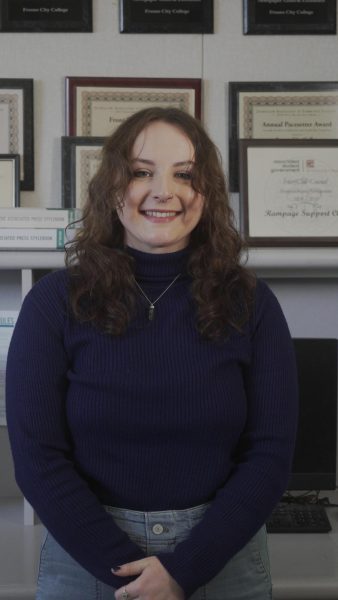
Sara Ohler is a 24 year-old journalism major who was born and raised in Fresno, CA. After graduating high school in 2017, she didn't know what she wanted...


